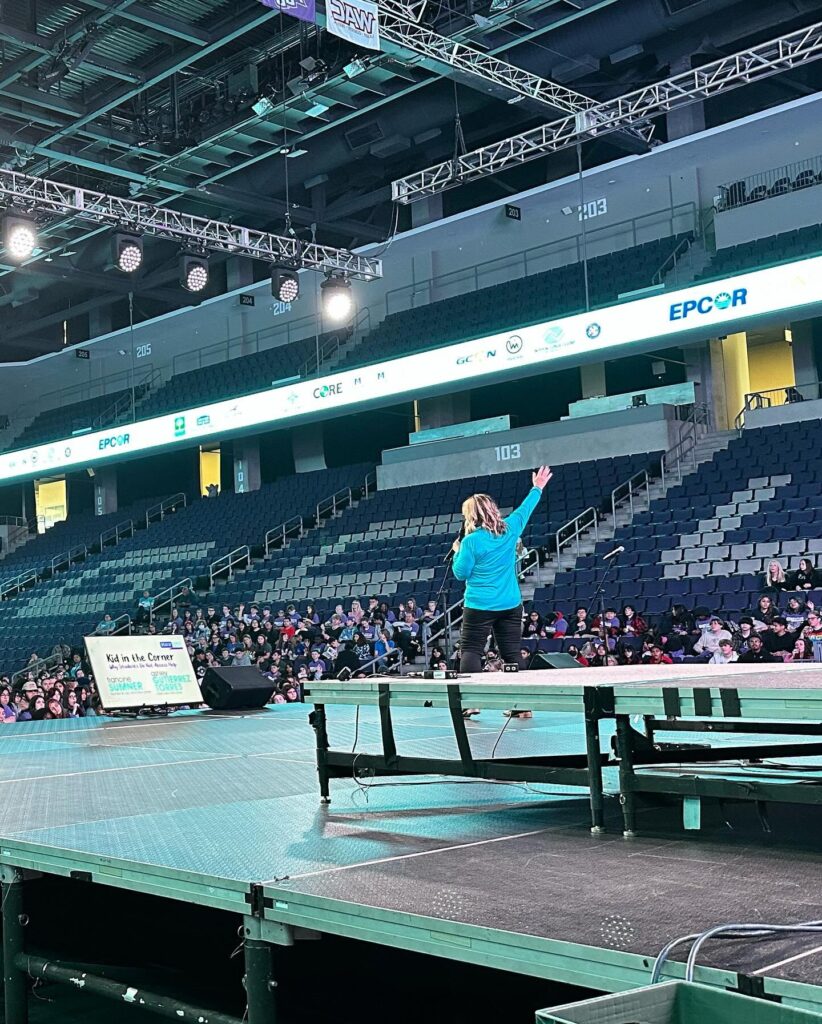Written by Francine Sumner, Founder & CEO at Kid in the Corner
In the United States, we are facing an unprecedented mental health crisis among our youth. In 2024, according to Mental Health America’s State of Mental Health in America Report, Arizona was ranked #50 in the nation for youth mental health action. Yet, despite the mounting evidence that mental health issues are impacting our children and adolescents, we are still failing to address the problem adequately.
At Kid in the Corner, we believe that meeting youth in their environment is critical, and mental health programming and education are a vital part of this solution. As demonstrated through our innovative Penny Pledge Programming, we call for it to be integrated into school curricula nationwide, with no cost burden placed on educators or youth organizations. It is not enough to wait until youth are in crisis to give them the help they need. We must equip them with the knowledge and skills to understand, manage, and seek support for their mental health from an early age.
The Benefits of Mental Health Education
Mental health education in schools can have a profound impact on both the individual student and the overall school climate. When children and teenagers are taught about mental health from a young age, they are better equipped to identify signs of mental distress in themselves and others. They gain the language and resources to talk about mental health, breaking down the stigma that often surrounds it.
In addition, mental health education helps young people build resilience and coping strategies, giving them tools to navigate the stresses and pressures of growing up in an increasingly challenging world. This is crucial not just for those already facing mental health challenges but for all students, as they face academic pressures, social media influence, bullying, and a range of personal difficulties. The earlier these skills are taught, the better prepared young people will be for the obstacles they will inevitably encounter.
Why It Should Be Free for Educators and Youth Organizations
The importance of mental health education is clear, but many schools and youth organizations struggle to implement it due to a lack of funding and resources. Budgets are already stretched, and teachers, already overburdened with lesson plans, grading, and managing classrooms, cannot be expected to take on additional responsibilities without adequate support. Schools, especially in underserved communities, often lack the necessary funds to pay for professional development in mental health education or the materials to support it.
That is why we must ensure that mental health education is provided to educators and youth organizations at no cost to them, through programs like Kid in the Corner. Public schools and nonprofit organizations are on the front lines of this crisis and should not be asked to bear the financial burden of implementing a solution. Mental health education should be an investment in our children’s future and our society’s well-being. The cost of inaction is far higher, including an increased burden on the healthcare system, a drop in academic performance, and the loss of young lives to suicide and violence.
A Collective Responsibility
This is a call to policymakers, education leaders, and communities to take action now. The resources to provide mental health education are available, and with the right policy decisions, we can ensure that every student has access to the support they need. We urge local, state, and federal governments to allocate funding for mental health programs in schools and to partner with nonprofits like Kid in the Corner to make these programs widely accessible to all educators and youth organizations at no cost. At Kid in the Corner, we partner with schools and communities to prioritize mental health education in every classroom, at no cost.
As a society, we have a collective responsibility to prioritize the mental well-being of our youth. Just as we teach our children math, science, and history, we must teach them how to care for their minds and emotions. Investing in mental health education is an investment in our children’s futures and our communities’ future. The time to act is now.
These opinion pieces reflect the opinion of the author, and do not reflect official positions of the Greater Phoenix Chamber.


